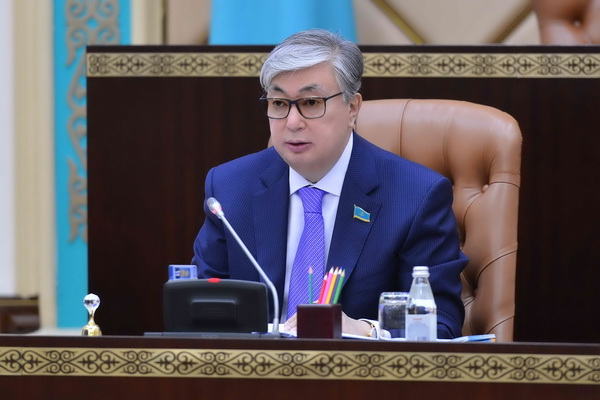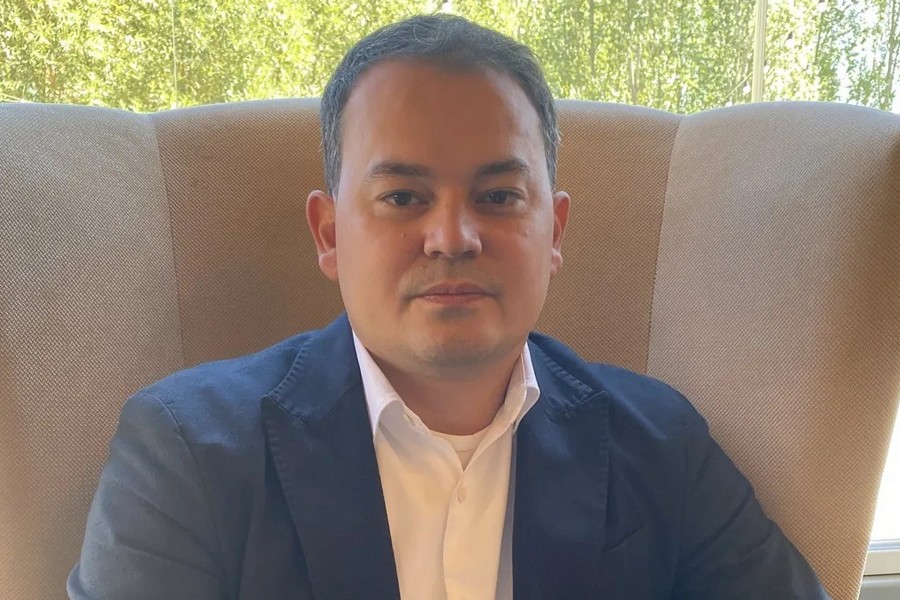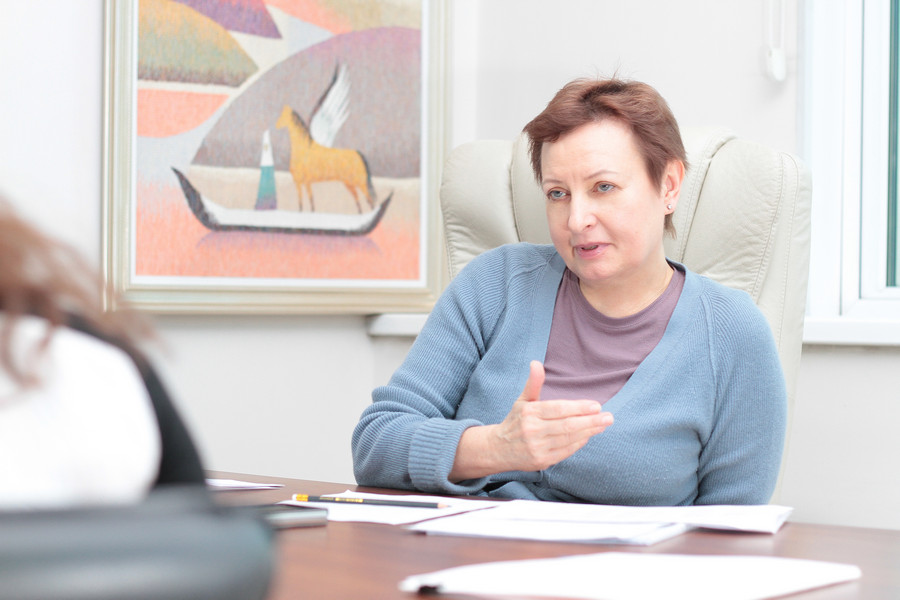Speaker of the Senate of the Parliament Kassym-Zhomart TOKAYEV:
IN 2017 THE PARLIAMENT PASSED 94 LAWS, INCLUDING 4 CONSTITUTIONAL LAWS

Last year the Senate of the Parliament did huge work having passed 94 laws, including amendments to the Constitution on transferring some presidential powers to the other branches of power. Last year Kazakhstan also participated in a number of meaningful international events. Speaker of the Senate of the Parliament Kassym-Zhomart TOKAYEV shared his opinion on the 2017 results and plans for 2018 with Interfax-Kazakhstan.
- Kassym-Zhomart Kemelevich, which five events became the most meaningful for you last year?
- Among last year’s milestone events, large-scale transformations initiated and inspired by Head of State N.A. Nazarbayev take a special place. In January, the president delivered the address "Third Modernization of Kazakhstan: Global Competitiveness," in March constitutional reform was carried out, and in April the program article “Look in the Future: Modernizing Public Consciousness" was published. In 2017, Astana proved to be at the epicenter of many important events that were resonated far and wide across the Globe. First of all, we are talking about EXPO-2017. The SCO summit will also go down into history outlining the new geographical boundaries of this association. Kazakhstan’s foreign policy agenda was determined by the role of our country as a non-permanent member of the UN Security Council.
The adress of the head of state "Third Modernization of Kazakhstan: Global Competitiveness" has become a strategic document for the whole society, in which the key aspects of structural transformation of the economy have found accurate and concentrated reflection.
The address determined a number of concrete objectives for the government, parliament and society as a whole. The Senate activities were predominantly aimed at providing legislative support for implementation of this document last year. The deputies’ corps did a lot of work on the new Tax Code, amendments intended to rehabilitate the banking sector and improve corporate governance. In addition, the legislative acts aimed at humanizing administrative and criminal legislation were passed. In total, 94 laws were passed in 2017, among which a special place is undoubtedly occupied by the amendments to the Constitution that provided a legal basis for the political reform proposed by the head of state. A number of presidential powers were transferred to the other branches of government, the parliament got a number of new powers to supervise the executive branch. The government responsibility to the parliament was strengthened. In addition, four constitutional laws were adopted, the MPs worked on 3 codes, as well as a number of other legislative acts.
In April, the article “Look in the Future: Modernizing Public Consciousness" was published, in which the head of state defined the benchmarks for ideological modernization of our society. Consistently implementing the president's intention, our people must show the world the image of an advanced nation keeping pace with real progress, being fairly proud of its historical sources, cultural traditions, but not suffering from xenophobic evils.
The proposals put forward, in fact, determine Kazakhstan’s civilizational choice. In particular, this is transition of the Kazakh alphabet to Latin script, a program to translate 100 world’s best textbooks into the Kazakh language, the project " Modern Kazakhstan’s Culture in the Global World." Recently our compatriots familairized themeselves with "100 New Faces of Kazakhstan". I am confident that the Tugan Jer (Native Land) program will serve to harmonize the past and the future, preserve our national identity in the era of globalization.
The international exhibition EXPO-2017 held successfully in Astana became a global platform for the exchange of best practices in the field of intelligent technologies for solving energy and environmental problems. It is gratifying that EXPO played an important role in strengthening the international prestige of our country. During the exhibition Astana became the center of diplomatic activity. The UN Secretary General, dozens of heads of state and government, speakers of parliaments, other high-ranking representatives from all over the world visited our capital. The topics related to the creation of "energy of the future" were voiced at the SCO and OIC summits, as well as during multilateral and bilateral negotiations, various conferences and round tables. Thus, Kazakhstan, as the organizer of the EXPO-2017, used all opportunities for synergizing global efforts for the careful use of natural resources for the current and future generations.
The June SCO summit in Astana had a wide global resonance, at which the major Asian players such as India and Pakistan joined this alliance. There is no doubt, this will add the additional economic and political weight to the SCO, which unites nearly 45% of the world's population, 60% of the Eurasian territory, and a third of the world economy. it is not mere coincidence that the organization is already called the "cornerstone of the multi polar world", it can become a powerful driver for the formation of single economic space of greater Eurasia.
Kazakhstan's membership in the UN Security Council is a new level of involving national diplomacy in world affairs. Our country uses its membership in the UN Security Council to advance its strategic interests, primarily to strengthen the stability and security of Kazakhstan, as well as of the Central Asian region, which is represented in this important body for the first time in the entire history of the UN.
The promotion of the international initiatives of the head of state in the field of nuclear nonproliferation, combating terrorism and extremism set out in the manifesto “World. 21st Century" will become an integral part of Kazakhstan’s agenda in the UN Security Council.
- What are the main objectives, the plans of the Senate of the Parliament for 2018?
- In 2018, the Senate will continue its legislative work aimed at implementing the strategic programs, the annual address of the head of state and the objectives set by the president at the opening of the third session of the parliament. The parliament has over 30 bills under examination at the beginning of the year.
In addition, in the context of strengthening the powers of the legislative branch, the upper house will continue to actively use a form of parliamentary control such as parliamentary hearings. Parliamentary hearings are planned for 2018 on the following topics: On he Implementation of the Code of the Republic of Kazakhstan on the Health of the People and the Healthcare System; the Role of the Banking Sector in the Development of the Economy of Kazakhstan; On Progress in the Implementation of the State Program Digital Kazakhstan; On Progress in Modernization of the Law Enforcement Activity Procedural Basis.
The deputies’ corps has plans to hold a number of government meetings, trips to regions, meetings, round tables on the most various pressing issues of socio-economic development of the country.
Senators will continue to work internationally within the framework of multilateral inter-parliamentary structures and groups on interaction with the legislative bodies of the foreign states.
- While as the head of the UN Office at Geneva, you were involved in organizing the first international conference on Syria Geneva-1 held on June 30, 2012. Five years have passed, but progress on the political track for resolving the Syrian crisis in Geneva is still not seen. What, in your opinion, prevents the achievement of real progress in this aspect?
- As it's known the Geneva-1 main outcome was a communiqué of the Action Group for Syria was the only institutional arrangement for the Syrian conflict which for a long time. Starting negotiations we expected that this platform, created under the UN auspices will be able to ensure a political settlement in Syria. Unfortunately, the Geneva process has lost momentum over time. Nevertheless, its significance can not be written off.
Against this backdrop, the progress of the talks in Astana is noticeable, during which concrete agreements have been reached and are being implemented concerning the cessation of hostilities, securing a sustainable ceasefire, the formation of a tripartite mechanism for monitoring the ceasefire regime, and creation of de-escalation zones. During the recent round of the Astana process, the issue of releasing detainees, handover of bodies of the dead and search for missing persons was discussed in practical terms. A joint statement on humanitarian demining in Syria, including UNESCO's cultural heritage sites was also adopted.
The principles outlined in the statements of the guarantor countries in Astana, in our view, reflect the basis of the settlement. It is about a firm commitment to the sovereignty, independence, unity and territorial integrity of Syria, determination to continue cooperation in the interest of the final elimination of IGIL / Daish, Jabhat an-Nusra and other terrorist organizations, prevention of the redeployment of international terrorists to other countries and regions.
The Astana process made possible thanks to active mediation efforts of our country and its president gave new breath to the inter-Syrian negotiations. Kazakhstan created all conditions for the organization of this multilateral negotiation process. Without substituting the Geneva process, the meetings in Astana contribute to the establishment dialogue between the Syrian government and the opposition, the guarantor states thereby creating the basis for the subsequent steps aimed at the peaceful resolution of the crisis in the country.
Syria's protracted conflict has been caused by a whole range of reasons of a geopolitical, ethno-religious, economic nature, and therefore has internal, regional, global dimensions. Time, political will and readiness to compromise are required of all the parties to the conflict in order to unravel this tangle of contradictions. Therefore, the UN and its most important body- the Security Council – should intensify efforts to bridge both the positions of the countries on which the settlement of the Syrian crisis and Syria’s future state depend and of participants in the inter-Syrian negotiations. I am sure when all the parties involved in the crisis resolution pass their part of the way it will be possible to speak about achieving a broad settlement in Syria in the name of the peaceful future of this long-suffering country.
- In the autumn of 2018 in Astana the next Congress of Leaders of World and Traditional Religions will take place. What issues will be on the agenda of the forum?
- Currently we are doing active preparatory work for this important international forum. Within the framework of the Congress secretariat the issues are being addressed that are to be included in the agenda of the religious summit, the membership of the participants is being agreed upon.
The Congress delegates have to solve important issues of interfaith dialogue and building a safe world. It is expected that the sectional sessions will be devoted to the following topics: Religions in a Changing Geopolitical Landscape: New Opportunities for Consolidation of Humanity, Religion and Globalization: Challenges and Responses, Religious and Political Leaders in Overcoming Extremism and Terrorism.
The Astana International Award solemn presentation for contribution to interreligious dialogue and honorary medal of the Congress of Leaders of World and Traditional Religions will take place for the first time.
A number of prominent state leaders, parliamentarians and public figures from several countries are expected to participate in the forum.
- Thank you for the interview!
January, 2018
© 2025 Interfax-Kazakhstan news agency
Copying and use of these materials without reference to the source is prohibited
Archive





